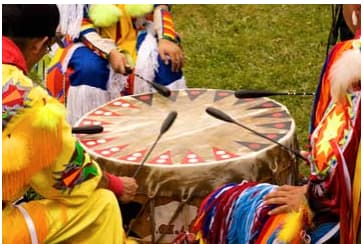Destination Stewardship Report – Volume 4, Issue 3
This post is from the Destination Stewardship Report, a publication that provides practical information and insights useful to anyone whose work or interests involve improving destination stewardship in a post-pandemic world.
Indigenous Tourism eLibrary Offers Guidance for Destinations
A remarkable, easy-to-use online resource provides a wealth of information that goes well beyond its topic to present an ethical approach for all. Ellen Rugh-Estrada reviews the Indigenous Tourism eLibrary, including tips on how to use it.
Working out a responsible destination strategy for Indigenous tourism just got easier

Photo from the ITCA website
For tourism leaders of diverse backgrounds, the task of accurately and ethically representing Indigenous tourism in a destination requires tact and thoughtful strategy.
Luckily for them, understanding a responsible destination strategy for Indigenous tourism just got easier.
Ethical considerations apply in all cases – whether the destination has a thriving and vibrant Indigenous community at present or tourism offerings reflecting a sorrowful history of indigenous forebears.
The Indigenous Tourism Collaborative of the Americas (ITCA) new eLibrary consolidates hundreds of useful resources to help destination leaders plan for, manage, promote, and monitor sustainable and resilient indigenous tourism. Created as the group’s inaugural project, the eLibrary demonstrates that ITCA leads the charge as a robust network of indigenous tourism leaders, tourism industry leaders, government agencies, universities, and nonprofits, all working together to develop Indigenous tourism sustainably and respectfully.
When investigating the eLibrary’s user experience and catalog of resources, we came away with a few step-by-step tips to maximize your time and find the right resources for you.
Beginning Your Search
With so many resources available, it’s important to first understand the core information for which you’re looking.
Step 1: Write out your research topic as a statement or question.
Example: How can I responsibly market indigenous tourism attractions in Canada?
Step 2: Pull out the main concepts from your sentence.
Example: Responsibility, marketing, attractions, Canada
Step 3: List out synonyms your concept.
Example: Ethics, best practices, First Nations, native, sites, excursions, tours, advertising
Enter your search parameters
Use these keywords as guidance for narrowing your search. (Unfortunately, unlike other advanced catalogs, only one search word or term can be input at a time.)
 Step 4: Determine your filters, beginning with categories, topics, and geographic area.
Step 4: Determine your filters, beginning with categories, topics, and geographic area.
Try leaving out specific authors and “what are you looking for?” in your search filters for now, as not to overly confine your results.
Step 5: Evaluate your results and adjust accordingly.
If your results are too limited, try expanding to a broader concept – for example, “global” instead of “regional geography”. If too broad, add in a specific keyword under “Topic(s)” – author(s), language parameters, or parse down your selected subcategories.
While the eLibrary does not provide an end-all-be-all solution to exchanging indigenous knowledge and tools with diverse users, it marks a monumental milestone of large-scale coordination and unified efforts among these often-siloed groups.
“The first goal [ITCA] set was the eLibrary, but beyond that we have had many important discussions about education, capacity building, and research so that together we can assist indigenous communities to create a tourism industry that they control and manage, informed by indigenous guidance and leadership.” says Edward Hall, Indigenous Economic Development and Tourism Executive in Residence at George Washington University.
Lean on these resources for ethical guidance and applaud the major lift this network has provided. In the future, there is still much we can look forward to from them.
For more information, check out this webinar about the eLibrary: https://indigenoustourismamericas.org/indigenous-tourism-elibrary-now-open-to-the-world/
About the Author
Ellen Rugh-Estrada is a Destination Stewardship Report contributing editor.



